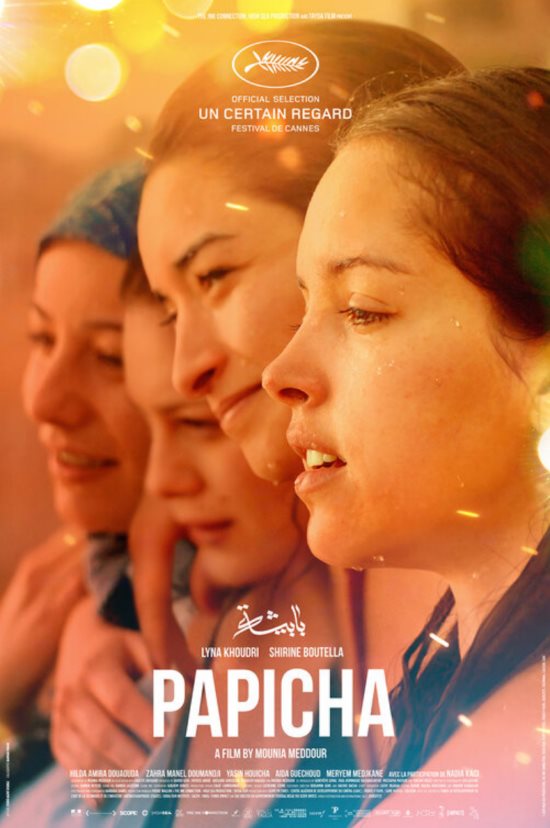
| ||||||
Nedjma, 18, is a student living in a university girls-only dorm. She dreams of becoming a recognized fashion stylist. At night, she escapes from the locked-up dorm with her friends to go to the night clubs where she sells her creations to the papichas. Meanwhile the political situation is worsening, daily bombings kill bystanders, and religious rigorism becomes more prevalent and threatening. Nedjma and her friends decide to defy all the rules to organize a catwalk show.
Deliberately paced, the film follows a variety of powerful and suspenseful events. Lyna Khoudri and Shirine Boutella as the two main rebellious papichas play their part very convincingly.
With this first full-length movie, Meddour denounces the religious fundamentalism's oppression of the woman's body with power and anger.
Meddour left her country in 1996 with her parents, fleeing the Islamist oppression that threatened her father. Like the girls in the movie, she lived in a dorm in Alger when the terrorist attacks exploded everywhere. She said in an interview that she remembers that when a woman wanted to be free and beautiful, she could lose her life.
The movie is a hymn to all the Algerian women who, as Meddour describes them, have always resisted adversity. It shows a feminine world of solidarity and support, compassion and tolerance. Set in a time of unrest, it includes some violent scenes.
"Papicha" was presented at the Cannes Film Festival in 2019 where it was awarded the Best First Feature Film award, and the Best Arab Narrative Film at the El Gouna Film Festival in Egypt. The film was to represent Algeria at the Oscars. But the current regime refused to let the movie be distributed in Algeria (a condition to be included in the selection). Meddour, who now lives in France, said she was saddened by the exclusion, but that the movie secretly makes the rounds in her country of origin, and that it is what counts.
To view the movie, access it this month on the internet through the International Film Showcase website (http://internationalshowcase.org/) using the Chrome platform (viewers using Firefox reported difficulty accessing the movie).
Reach the reporter at:
